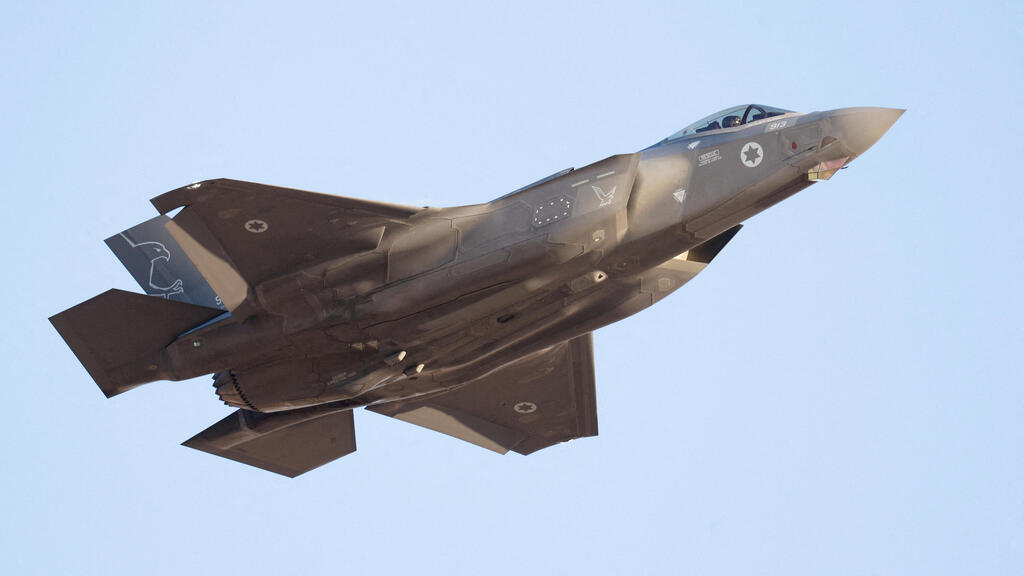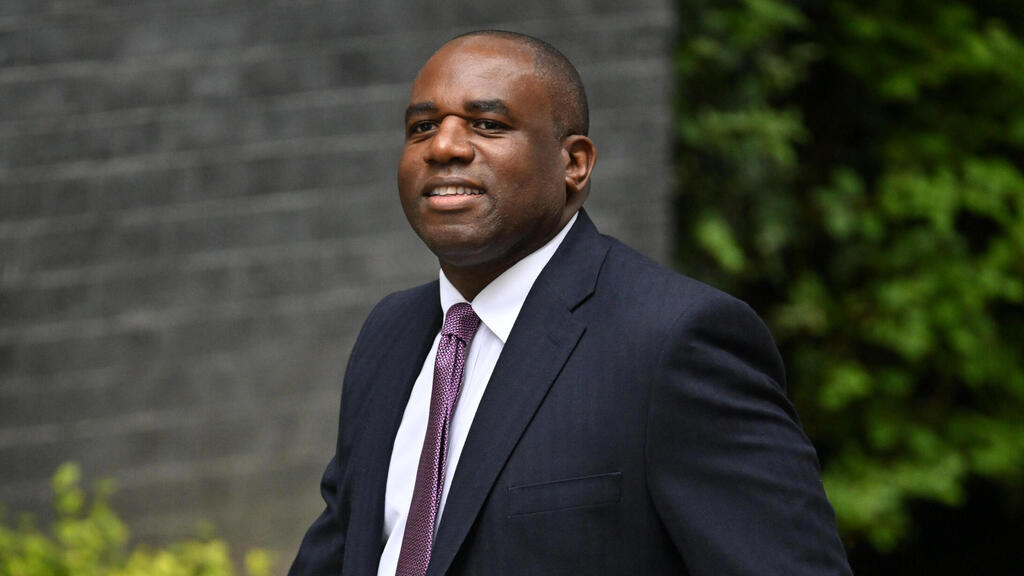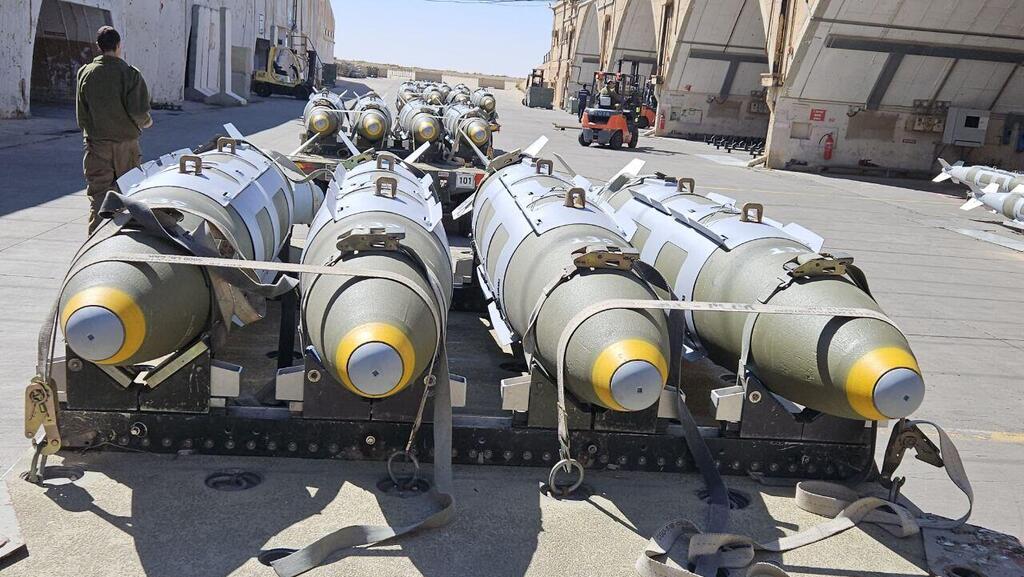The day after the UK announced the suspension of 30 arms export licenses to Israel, new details have emerged about the behind-the-scenes process leading to the decision. Ultimately the British move, though disappointing, is seen as the lesser evil and could have been far more severe.
The UK is a relatively minor arms supplier to Israel, accounting for less than 1% of Israel's total arms imports. Each year, the UK approves around 350 arms licenses for defense companies, with 90 of those for the IDF. The suspension of 30 licenses represents just 8% of the total.
British officials emphasize that this decision will not affect Israel's ability to defend itself – a point confirmed by Israeli sources, who acknowledge that while the decision sends a negative signal to Israel’s enemies, it won't cause operational harm to the IDF. The suspended licenses involve parts for F-16 fighter jets, drones, naval systems and targeting equipment. Israel can easily source these parts from other countries.
So, what prompted the UK to make this decision? British authorities concluded there was a risk that the arms they supply to Israel could be used in ways that violate international humanitarian law, imposing a legal obligation on them to halt sales.
The British government’s review focused on three key concerns:
Humanitarian access: The UK determined that Israel, as the occupying power, failed to fully ensure the delivery of essential humanitarian aid to Gaza. They believe Israel could have done more to facilitate the access and distribution of humanitarian assistance and recommended that Israel establish a more efficient system to ensure safe entry of aid.
Detainee rights: The British government raised concerns over Israel’s denial of Red Cross visits to detainees, including those captured from Hamas’ elite Nukhba unit. Reports of alleged mistreatment of detainees were also flagged, with the UK noting that the volume and consistency of these claims suggested some instances of abuse. Although Israel has opened investigations, the UK remains skeptical, partly because Israel continues to block access to detention sites for the International Committee of the Red Cross (ICRC). A proposal to allow visits by a retired Israeli judge and two foreign observers is currently being discussed, despite opposition from National Security Minister Itamar Ben-Gvir.
Civilian casualties in Gaza: Despite the high number of civilian casualties, the UK could not conclusively determine whether Israel violated international law during its military operations in Gaza. The difficulty in obtaining specific, sensitive information from Israel, such as target details and measures taken to avoid civilian harm, complicated the investigation. Additionally, credible reports indicated that Hamas had embedded itself within the civilian population, using civilian infrastructure. As a result, the UK found insufficient evidence to accuse Israel of breaching international law in its Gaza operations.
Had the UK concluded that Israel violated international humanitarian law, the suspension could have escalated to a full arms embargo. The British government’s review relied on a wide range of sources, including reports from NGOs, media coverage, UN statements and discussions between the UK’s attorney general and Israeli counterparts.
In the end, the UK determined there was a clear risk that certain items, if sold to Israel, could be used to commit or facilitate serious breaches of international humanitarian law.
Could the licenses be reinstated?
British officials say it’s possible. The review process is ongoing, and if Israel improves humanitarian access and allows visits to detainees, the licenses could be restored.
Senior British officials stressed that there is no change in the UK's full support for Israel’s right to self-defense. "We sent aircraft to protect Israel from the Iranian attack on April 14, and publicly stated that if Iran attacks again, we will protect Israel. That commitment remains unchanged," an official said.
“After a rigorous process in line with the UK's legal obligations, the government concluded there is a clear risk that military exports to Israel, used in operations in Gaza, could be involved in serious violations of international humanitarian law. Continuing such exports would be inconsistent with our strategic export licensing criteria,” UK Business Secretary Jonathan Reynolds, who signed off on the license suspensions, said.
"While Israel has the capability to comply with international humanitarian law, and its senior officials have affirmed their commitment to do so, significant doubts remain about their track record," Reynolds added. “As a result, I was advised that there is a clear risk that some UK exports to Israel could be used to commit or facilitate serious violations of international humanitarian law.”
"The government condemned Hamas' barbaric attack on October 7 and supports Israel’s right to defend itself in line with international law. This is not a blanket ban but is targeted at specific licenses that could be used in Gaza operations. The evaluation of Israel’s commitment to international humanitarian law will continue, particularly regarding the provision of food and medical supplies to civilians in Gaza and the treatment of detainees, and could change over time to allow for the reinstatement of these licenses.”
The UK emphasizes there is no comparison between Hamas terrorists and Israel’s democratic government. The UK remains committed to supporting Israel’s self-defense, but to issue arms export licenses, it must assess Israel's compliance with international humanitarian law, despite the abhorrence of Hamas' tactics and ideology.
The UK decided to exempt spare parts for F-35 fighter jets from the suspension, citing contractual obligations and commitments to the U.S.
“It is not currently possible to suspend F-35 component licenses for Israel without impacting the entire global F-35 program, including its broader strategic role in NATO and our support for Ukraine. This government is unwavering in its commitment to security, not just for this country, but for our allies around the world, especially at a time of global insecurity and increased volatility,” according to Reynolds.
Chairman of the Knesset Foreign Affairs and Defense Committee, Knesset lawmaker Yuli Edelstein, urged Israel to “develop a better and more comprehensive domestic capability to produce and develop weapons. The success of companies like Israel Aerospace Industries, Elbit, Rafael and others demonstrates not only the creativity and innovation Israel can achieve but also proves a clear economic benefit.”





